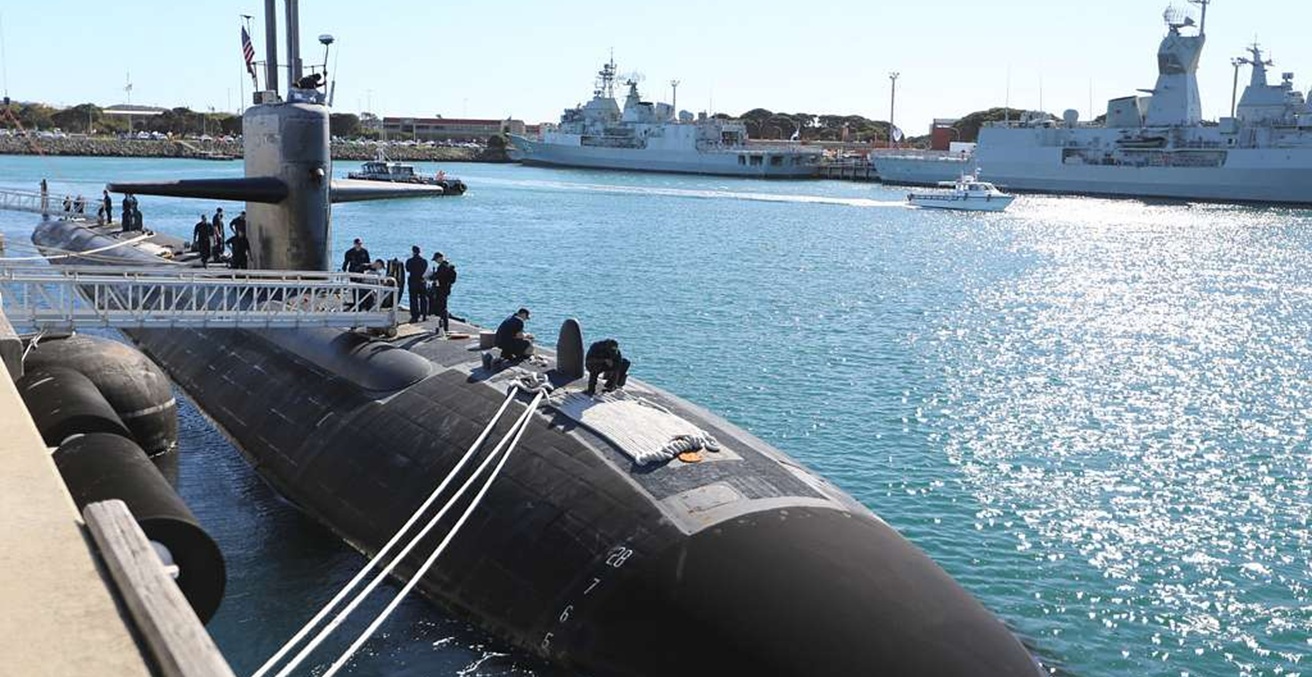This week in Australian foreign affairs: pause to the easing of border restrictions, statements on Solomon Islands violence, Dutton’s National Press Club speech, and more.
Prime Minister Scott Morrison, Deputy Prime Minister Barnaby Joyce, Minister for Foreign Affairs Marise Payne, Minister for Health Greg Hunt and Minister for Home Affairs Karen Andrews announced a pause to the further easing of border restrictions on 29 November. This announcement followed advice from the Chief Medical Officer Paul Kelly in light of the emergence of the Omicron variant of COVID-19. The decision was described as “temporary” and “necessary” and affects international skilled and student cohorts, as well as humanitarian, working holiday maker and provisional family visa holders.
On 25 November, Morrison, Payne and Andrews issued a joint statement on Solomon Islands. The statement called for an end to the violence that has arisen out of ongoing protests in Honiara, and also noted that Australia has received a formal request for assistance from the Solomon Islands Government under the two nations’ 2017 Bilateral Security Treaty.
Payne also issued a joint media release alongside her Papua New Guinean counterpart, Soroi Eoe, on 27 November. The statement referred to both nations’ concern about the violence in Honiara and the fact that the Australian Federal Police and Royal Papua New Guinea Constabulary are deploying together in response to the request by the Solomon Islands Government.
On 25 November Leader of the Opposition Anthony Albanese, alongside Shadow Minister for Foreign Affairs Penny Wong, noted Labor’s support for the Government’s decision to send Australian Federal Police and Defence Force Personnel to Solomon Islands.
The governments of Australia, Canada, New Zealand, Norway, the Republic of Korea, the United Kingdom and the United States delivered a joint statement on the increasing violence in Myanmar on 26 November. The nations reiterated their “grave concern” over “reports of ongoing human rights violations and abuses by the Myanmar Security Forces across the country, including credible reports of sexual violence and torture.” They called on Myanmar Security Forces to “immediately end the violence being perpetrated across the country” and pledged to continue to work closely with ASEAN, the UN and the wider international community “to promote accountability and support a lasting return to the current crisis and a return to the path of democracy.”
Payne announced the appointment of Peter Cai as the Chief Executive Officer of the National Foundation for Australia-China Relations on 1 December. The Foundation “brings together state, territory and local governments, business, education institutes, community and cultural sectors, and Chinese Australian communities to further build and strengthen Australia’s engagement with China.”
On 1 December, Payne virtually addressed the World AIDS Day Parliamentary Breakfast, where she noted the “remarkable progress” since the discovery of AIDS. Payne referred to the fact that AIDS-related deaths have declined by 56% since 2010 in the Indo-Pacific region, but also noted that “the impact of COVID-19 on the HIV response is devastating”. She discussed Australia’s commitment to sharing 60 million doses of COVID-19 vaccines to Southeast Asia and the Pacific by the end of 2022, and the importance of strong healthcare systems in managing both HIV/AIDS and COVID-19.
Minister for Defence Peter Dutton addressed the National Press Club on 26 November, where he warned that China was engaging in “increasingly alarming activities” and that conflict with China in the Indo-Pacific region would be “catastrophic”. Dutton stressed that “in the absence of a counter pressure, the Chinese government becomes the sole security and economic partner for Indo-Pacific nations.” Dutton referred to the AUKUS partnership as an initiative to “strengthen regional stability” which “should come as no surprise”, noting “there are significant opportunities for even wider cooperation” between the three nations. He also discussed the Morrison Government’s “tough but necessary decisions to deliver security and defend [Australia’s] national interests”, including through “breaking the people smugglers’ business model” and developing the Foreign Influence Transparency Scheme.
On 1 December, the Department of Defence released a statement noting that two Royal Australian Navy vessels have finished nine days of maritime warfare training with Canada, Germany, Japan and the United States during ANNUALEX 2021 in the Philippine Sea. The training included maritime communications, flying operations, replenishments at sea, and anti-submarine and anti-air warfare. Commanding Officer of HMAS Brisbane, Commander Aaron Cox, said that “by working together to refine our common maritime skills and tactics we also reaffirm our shared values and commitment to a stable Indo-Pacific.”
Minister for Trade Dan Tehan delivered the Government’s Annual Investment Statement in Parliament on 25 November. He referred to the “greater importance” of increasing investment “as we emerge from COVID-19”, and reflected on the fact that net foreign direct investment flows into Australia fell 48 per cent from 2019 to 2020. Tehan also noted that there are opportunities “through trade” to secure greater foreign investment, particularly as Australia’s free trade agreements with the United Kingdom and Eureopean Union are finalised.
On 26 November, Tehan noted that he will travel to Geneva, Switzerland, to attend the 12th World Trade Organisation Ministerial Conference. He stated that the rules-based trading system “has contributed to Australia’s ongoing prosperity and created jobs across our country”, and that Australia will ensure that the WTO “continues to deliver for Australian businesses by reducing the barriers to trade and maintaining adherence to the global trade rules”.
Tehan and Minister for Education Alan Tudge released the Australian Strategy for International Education 2021-2030 on 26 November. The Strategy “outlines measures to help support the rapid return of international students when borders open again on 1 December” and “outlines the direction for a more sustainable sector in the medium term.” It refers to the “desire to have more diversity amongst the international student population in order to reduce financial risk and maximise the Australian and international student experience”.
On 30 November, Tehan announced that former Australian Prime Minister Tony Abbott will travel to India “to advance the significant Australia-India economic and trade relationship under the Comprehensive Strategic Partnership”. Abbott will meet with stakeholders across business and government to promote this bilateral relationship.
Minister for Home Affairs Karen Andrews announced the listing of two new terrorist organisations, The Base and Hizballah, under the Criminal Code on 24 November. The Base is a “violent, racist neo-Nazi group” which is “known by security agencies to be planning and preparing terrorist attacks”. Hizballah’s External Security Organisation has been a listed terrorist organisation since 2003 but will now be listed in its entirety. The organisation “continues to threaten terrorist attacks and provides support to terrorist organisations such as Palestinian Islamic Jihad and Hamas.”
Isabella Keith is a weekly columnist for Australian Outlook. She is also an undergraduate student at the Australian National University studying Law and Politics, Philosophy and Economics. Isabella’s research interests include international law and comparative constitutional law.
This article is published under a Creative Commons License and may be republished with attribution.




